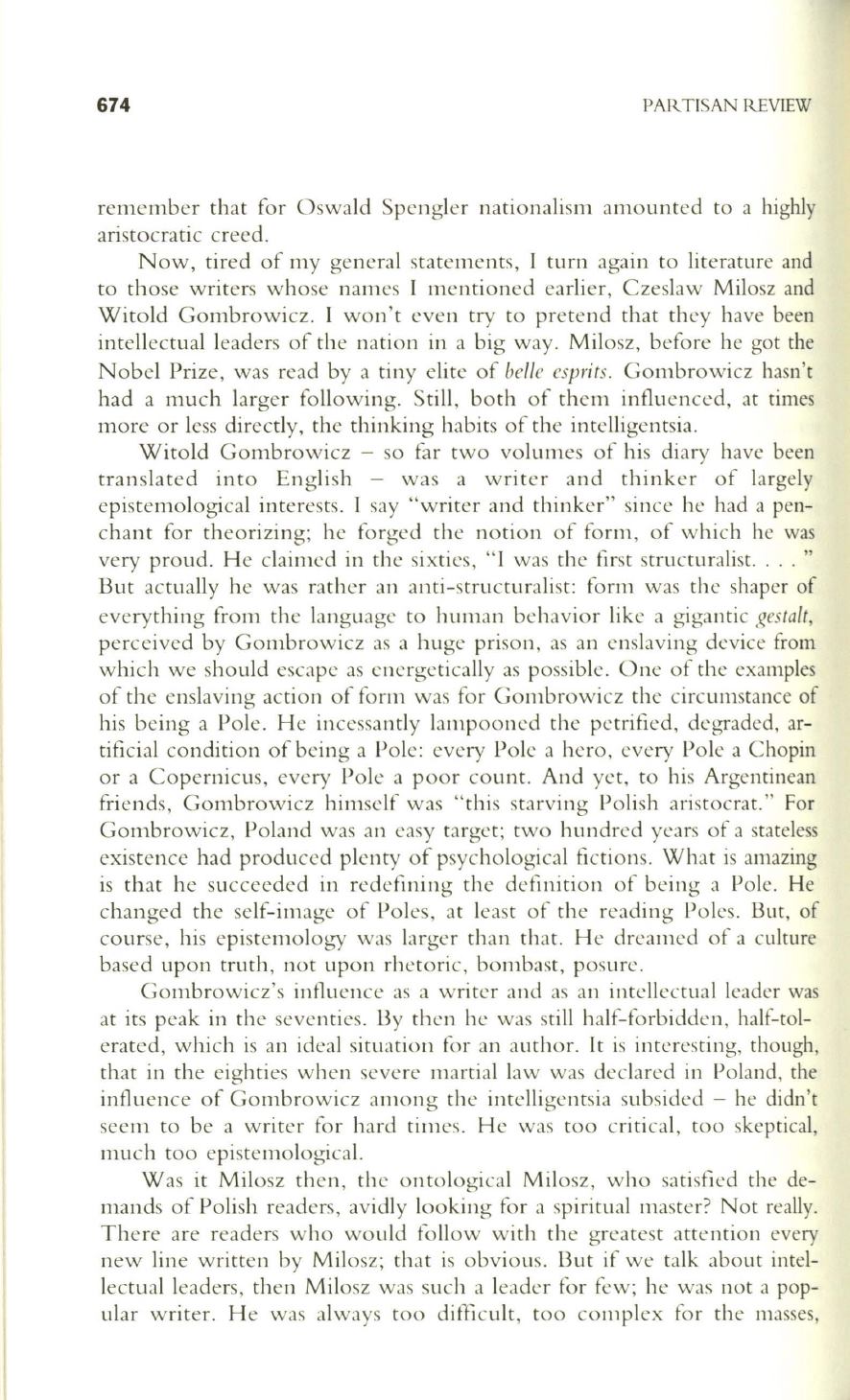
674
PARTISAN REVIEW
remember that for Oswald Spengler nationalism amounted
to
a highly
aristocratic creed.
Now, tired of my general statements, I turn again to literature and
to those writers whose names I mentioned earlier, Czeslaw Milosz and
Witold Gombrowicz. I won't even try to pretend that they have been
intellectual leaders of the nation in a big way. Milosz, before he got the
Nobel Prize, was read by a tiny elite of
belle esprits.
Gombrowicz hasn't
had a much larger following. Still, both of them influenced, at times
more or less directly, the thinking habits of the intelligentsia.
Witold Gombrowicz - so far two volumes of his diary have been
translated into English - was a writer and thinker of largely
epistemological interests. I say "writer and thinker" since he had a pen–
chant for theorizing; he forged the notion of form, of which he was
very proud. He claimed in the sixties, "I was the first structuralist.. . . "
But actually he was rather an anti-structuralist: form was the shaper of
everything from the language to human behavior like a gigantic
gestalt,
perceived by Gombrowicz as a huge prison, as an enslaving device from
which we should escape as energetically as possible. One of the examples
of the enslaving action of form was for Gombrowicz the circumstance of
his being a Pole. He incessantly lal1lpooned the petrified, degraded, ar–
tificial condition of being a Pole: every Pole a hero, every Pole a Chopin
or a Copernicus, every Pole a poor count. And yet, to his Argentinean
friends, Gombrowicz himself was "this starving Polish aristocrat." For
Gombrowicz, Poland was an easy target; two hundred years of a stateless
existence had produced plenty of psychological fictions. What is amazing
is that he succeeded in redefining the definition of being a Pole. He
changed the self-image of Poles, at least of the reading Poles. But, of
course, his epistemolo!:,'Y was larger than that. He dreamed of a culture
based upon truth, not upon rhetoric, bombast, posure.
Gombrowicz's influence as a writer and as an intellectual leader was
at its peak in the seventies. By then he was still half-forbidden, half-tol–
erated, which is an ideal situation for an author.
It
is interesting, though,
that in the eighties when severe martial law was declared in Poland, the
influence of Gombrowicz alllong the intelligentsia subsided - he didn't
seem to be a writer for hard times. He was too critical, too skeptical,
much too epistemological.
Was it Milosz then, the ontological Milosz, who satisfied the de–
mands of Polish readers, avidly looking for a spiritual master? Not really.
There are readers who would follow with the greatest attention every
new line written by Milosz; that is obvious. But if we talk about intel–
lectual leaders, then M i10sz was such a leader for few; he was not a pop–
ular writer. He was always too difficult, too complex for the masses,


